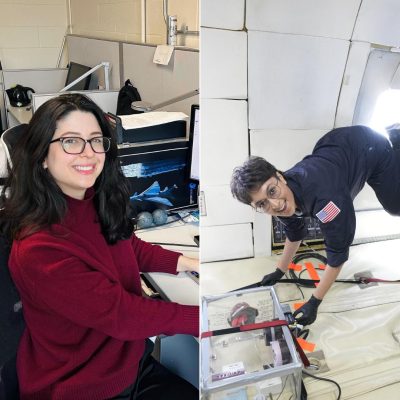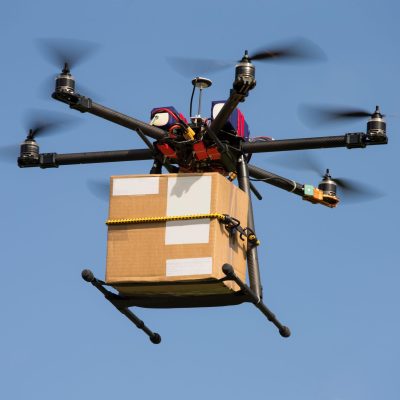The Lincoln Scholars and Military Fellows programs foster collaboration and research to prepare for the future
For over 15 years, the Lincoln Scholars and Military Fellows programs have made it possible for hundreds of students to advance their careers through graduate education. The Lincoln Scholars Program offers Lincoln Laboratory staff members the opportunity to pursue formal technical graduate programs at MIT and other universities. The Military Fellows Program covers tuition and fees for military officers while they perform thesis research at Lincoln Laboratory.
This April, Lincoln Laboratory staff, MIT faculty, and students attended a Lincoln Scholars and Military Fellows Appreciation Luncheon at the MIT Hacker Reactor in Cambridge, MA. The yearly luncheon celebrates the achievements made possible by collaboration between Lincoln Laboratory and university researchers, many of whom are from MIT’s main campus, as well as the accomplishments of the fellowship recipients.
Several students from the Lincoln Scholars and Military Fellows programs, including Tom Cheng, Nikita Larichev, Sage Trudeau, Billy Kline S.M. ‘25, and Kat Kononov ‘13, were invited to give lightning talks showcasing their research and ongoing projects.
“I’ve really enjoyed being able to work with both AeroAstro and MIT Lincoln Laboratory as I work on my master’s thesis research.” says Kline. “I’ve been very fortunate to have the guidance and support of both Prof. Hastings at MIT and Dr. Adam Shabshelowitz at the Lab when selecting my research topic and determining how to approach it. Hearing the perspectives of both my labmates in the Engineering Systems Laboratory and from several researchers in Lincoln Laboratory’s Space Systems and Technology Division has proved invaluable throughout my first year at MIT as I learn not only how to approach this area of research, but also graduate-level research in general.”
The event was organized by the Lincoln Laboratory – MIT Campus Interaction Committee, chaired by Kerri Cahoy, associate department head and professor of aeronautics and astronautics at MIT.
“It is always inspiring to see the research accomplishments of our Military Fellows and Lincoln Scholar students toward improving knowledge and national security,” says Cahoy. “The networking session brought together faculty, staff, and students from the Boston area and provided an opportunity to showcase their work, which will lead to new missions and technologies in the future.”
The celebration opened with a keynote presentation from Colonel Garry “Pink” Floyd, the Department of the Air Force Director of the Department of the Air Force-MIT AI Accelerator. The Accelerator leverages the combined expertise and resources of MIT and the Department of the Air Force to develop and ensure the ethical use of AI technologies for society and the nation.
Colonel Floyd shared perspectives and lessons that he has learned throughout his career, as well as some reflections on AI’s future in military operations – and just how quickly AI development could have a massive impact on civilian and defense operations. “We’re not losing if we’re learning,” said Floyd, of the importance of exploring creative applications for AI in every sector.
The celebration also included a poster session following the lightning talks, providing opportunity for deeper discussions on a broad range of research areas including space optical interferometry, magnetic imaging and automatic defect classification in chip manufacturing. “One of the main reasons for this luncheon is to further the technical conversation between professors, advisors and student researchers. It is especially interesting to see potential connections between these projects and other work going on at the Laboratory” says Heidi Perry, Chief Technology Officer at MIT Lincoln Laboratory. “The work done through the Lincoln Scholars and Military Fellows programs often contributes to broader technology initiatives and larger prototype development programs.”
The Department of Aeronautics and Astronautics and Lincoln Laboratory have long collaborated on initiatives that provide students with unique opportunities for education and research. MIT Beaver Works, another joint venture, supports project-based collaboration. Programs like these make it possible for students across campuses to learn and succeed together.
“By fostering collaborations between Lincoln Laboratory and university researchers, we are bringing together the best of the best, and leveraging the combined expertise to develop innovative technology solutions to address national security challenges,” says Chelsea Curran S.M. ’10 Ph.D. ’14, Associate Technology Officer at MIT Lincoln Laboratory. “The luncheon is a fantastic opportunity to highlight these collaborations and recognize the accomplishments of our Lincoln Scholars and Military Fellows.”





